‘Better Man’ Is A Different Animal of A Robbie Williams Biopic — Review
A film centered on UK pop star and ex-Take That member Robbie Williams as a CGI chimp is a breath of fresh air for biopics.
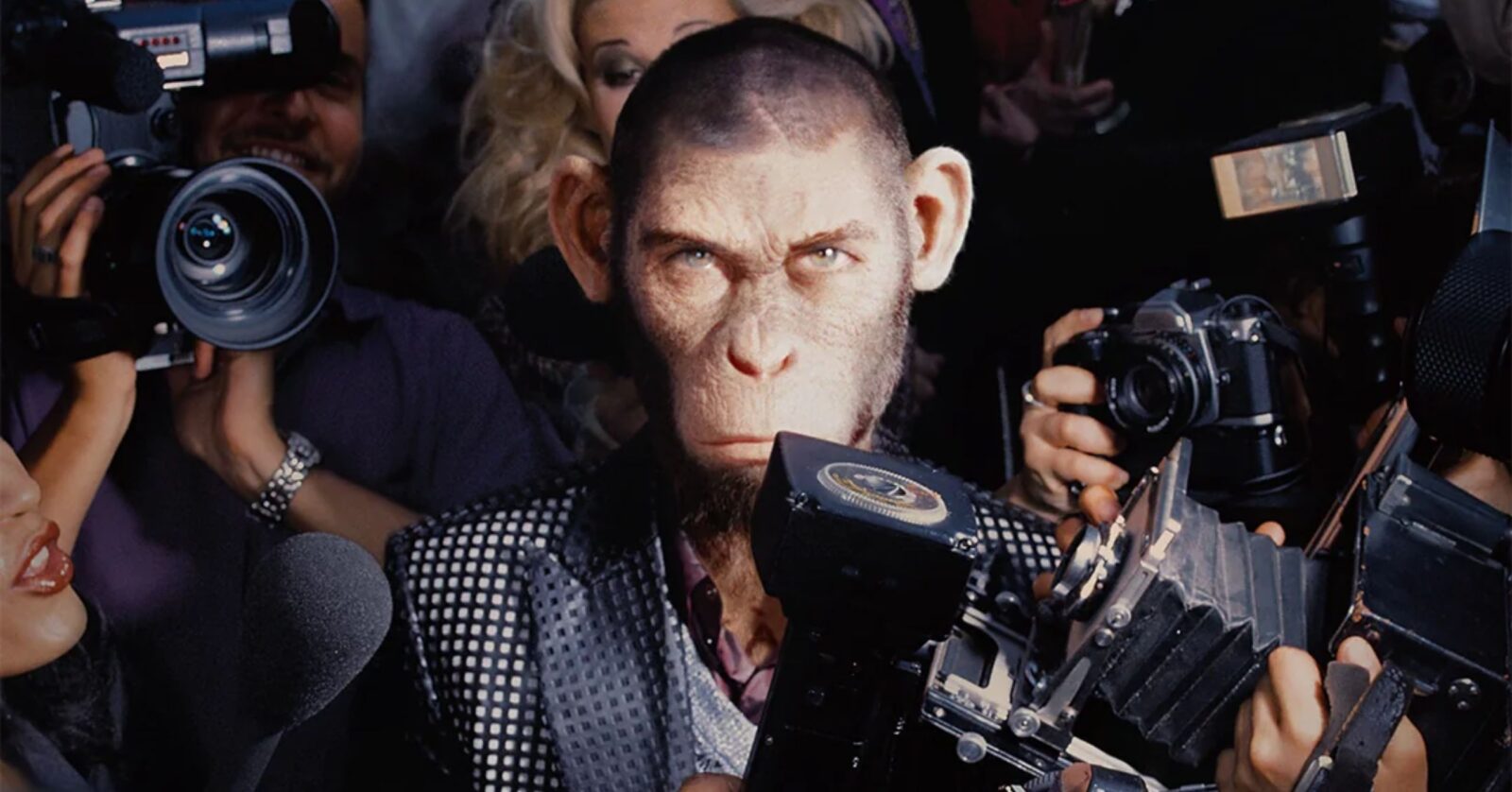
BETTER MAN POSTER: Courtesy of the Better Man official website
BETTER MAN POSTER: Courtesy of the Better Man official website
Instead of being a straightforward musical biopic, Better Man tells the story of English singer-songwriter Robbie Williams as a computer-generated chimpanzee — but there’s a valid reason behind this creative decision.
The former Take That member has always felt “less evolved than other people,” a sentiment that ultimately drives director Michael Gracey’s (The Greatest Showman) musical to be unique and creatively engaging.
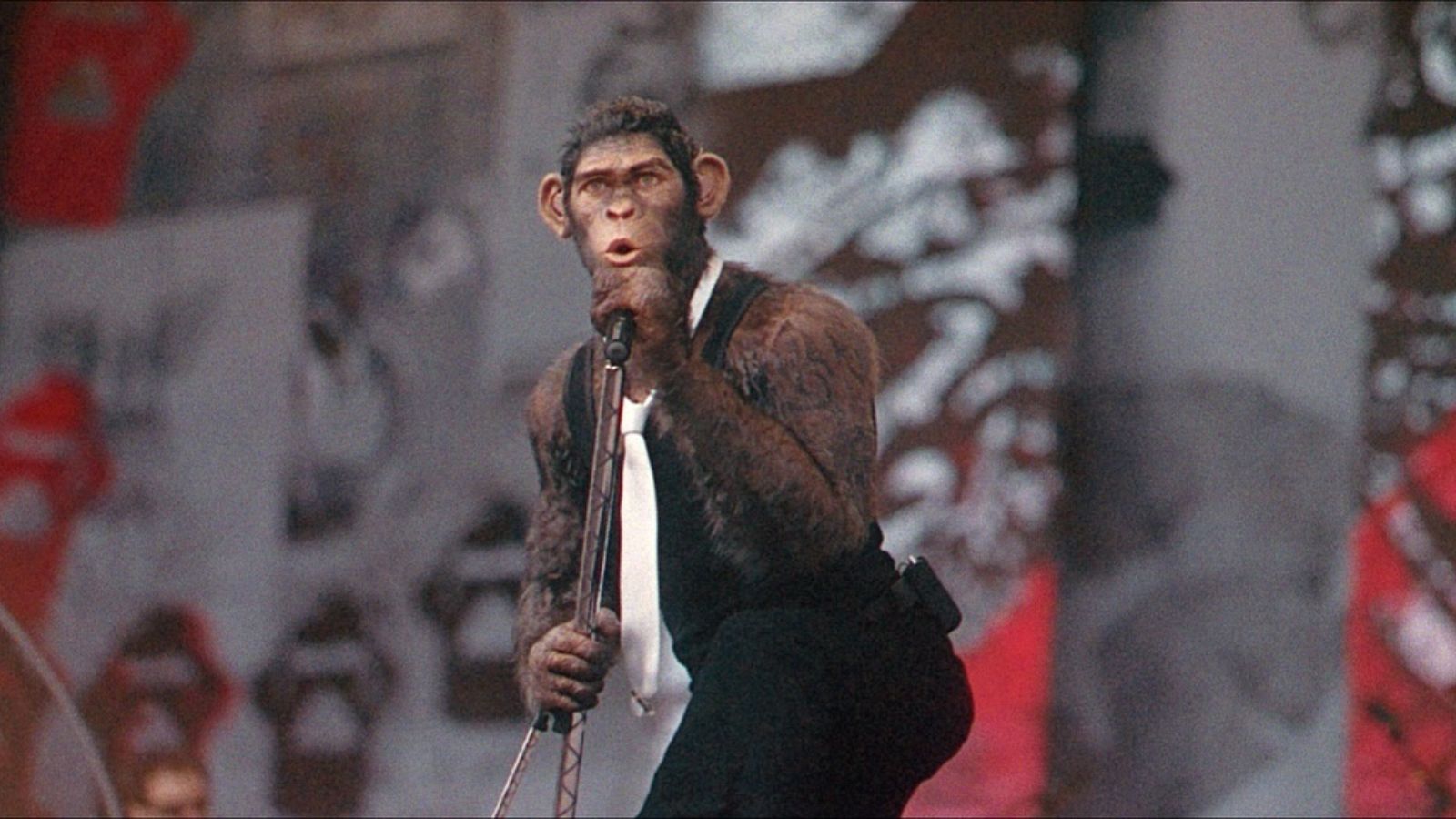
Courtesy of @robbiewilliams and @bettermanmovie
In a sense, this approach allows us to delve deeper into Williams’ struggles, using the medium to better understand the highs and lows he has experienced since childhood. The film portrays Williams, then referred to as Robert, as having major daddy issues despite being taught to sing like Frank Sinatra. Although he finds love and support from his grandmother, the abandonment by his father leaves a lasting impact, shaping his mental health and well-being in the years to come.
Every journey has a lightbulb moment where the protagonist aspires to do something significant. Williams dreams of becoming a singer and finds his opportunity when he joins the Manchester-based boy band Take That, which skyrocketed to popularity in the early 1990s. Now referred to as “Robbie,” he is riding high — both literally and figuratively.
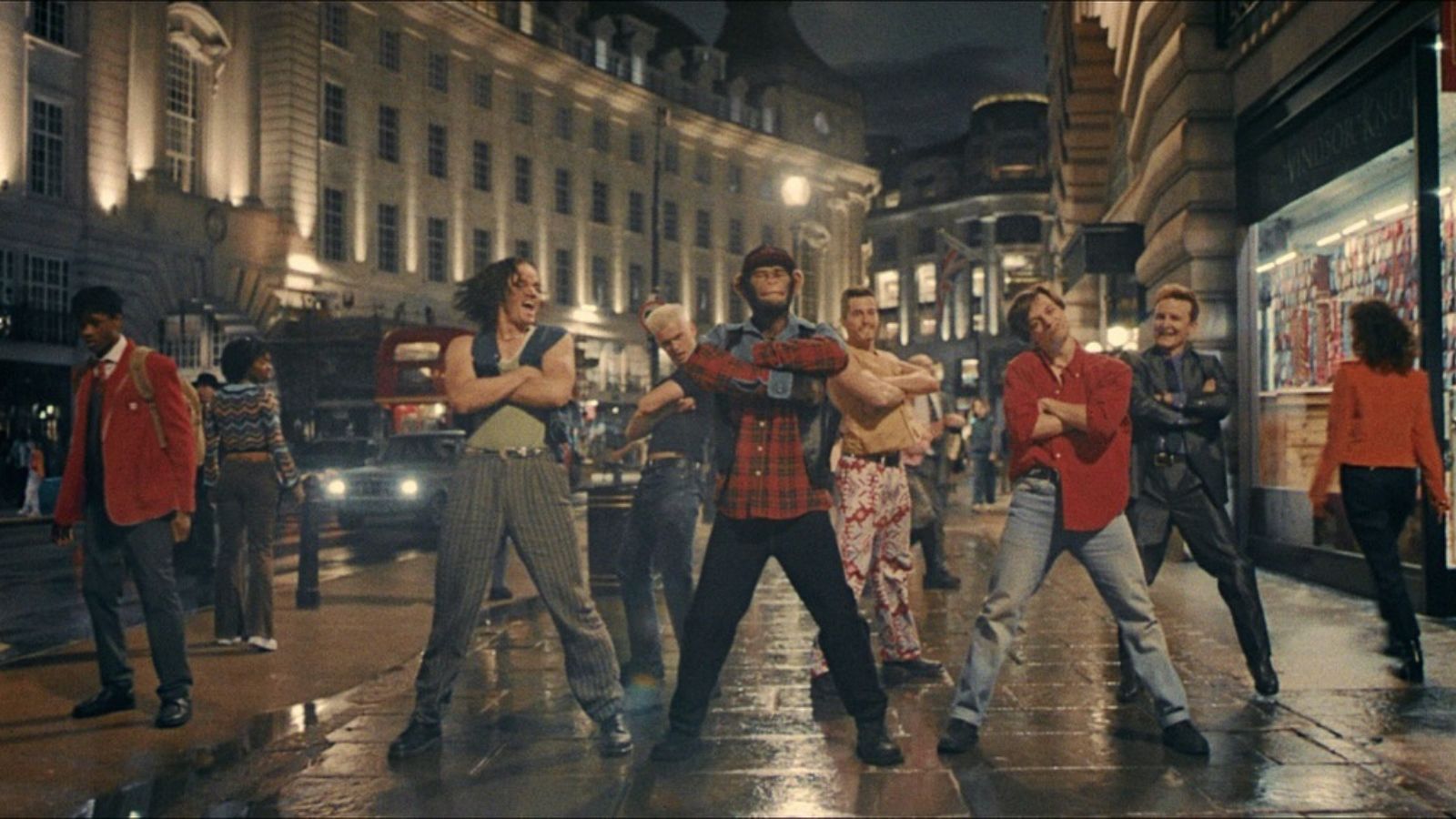
Courtesy of @robbiewilliams and @bettermanmovie
Better Man is not short on surprises. A visually striking musical number features “Rock DJ,” from William’s third studio album, Sing When You’re Winning. This scene alone proves that Hollywood isn’t allergic to creativity when the right people and vision are at the helm. However, the biopic isn’t afraid to paint Williams as unlikable. In its authentic and honest portrayal, we witness his fall from grace after leaving the pop group.
Even when finding love, William is still haunted by the internal struggles that keep him from finding his way as a solo artist post-Take That. In the usual character struggle, his success does not happen overnight. A glimmer of hope emerges with the release of his debut studio album, Life Thru a Lens. The sequence showcasing Williams’ creative breakthrough, as he teams up with English songwriter Guy Chambers, reminds us that something isn’t great at first.
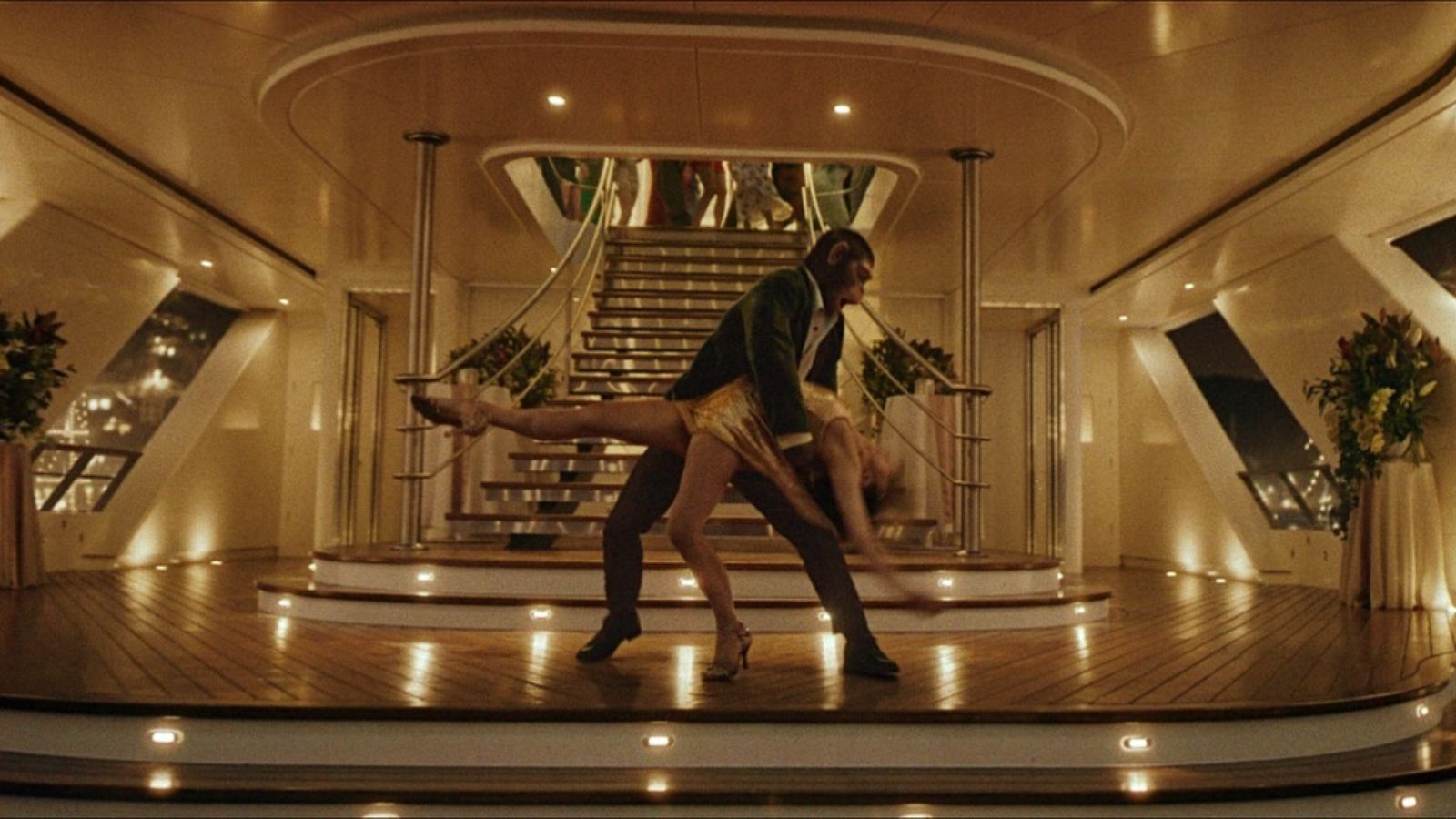
Courtesy of @robbiewilliams and @bettermanmovie
In what would be the film’s version of a climactic blockbuster spectacle, Williams performs at the Knebworth Festival in a cinematic presentation of his 2003 performance of “Let Me Entertain You.” And boy, are we entertained. In a dramatic turn of events, Williams jumps off the stage and “fights” his past selves literally in a violent, bloody affair. Sequences like this speak so much about this biopic’s intention to do more of what’s expected.
The film amplifies Williams’ downward spiral to a grand cinematic scale, using the medium to its fullest potential. This approach makes the experience more intimate and immersive, allowing us to genuinely care about Williams — both as a pop star and as a person. Outside of the United Kingdom, many people may only recognize a song or two from his catalog. Yet, this biopic compelled me to explore more of his music, inspired by the tracks featured in the film.
Unfortunately, Better Man bombed at the box office, grossing close to $20 million against its $110 million budget. These numbers could justify future musical biopics leaning toward safer, more conventional approaches, much like 2018’s Bohemian Rhapsody, which grossed nearly a billion dollars despite its modest $50-55 million budget.
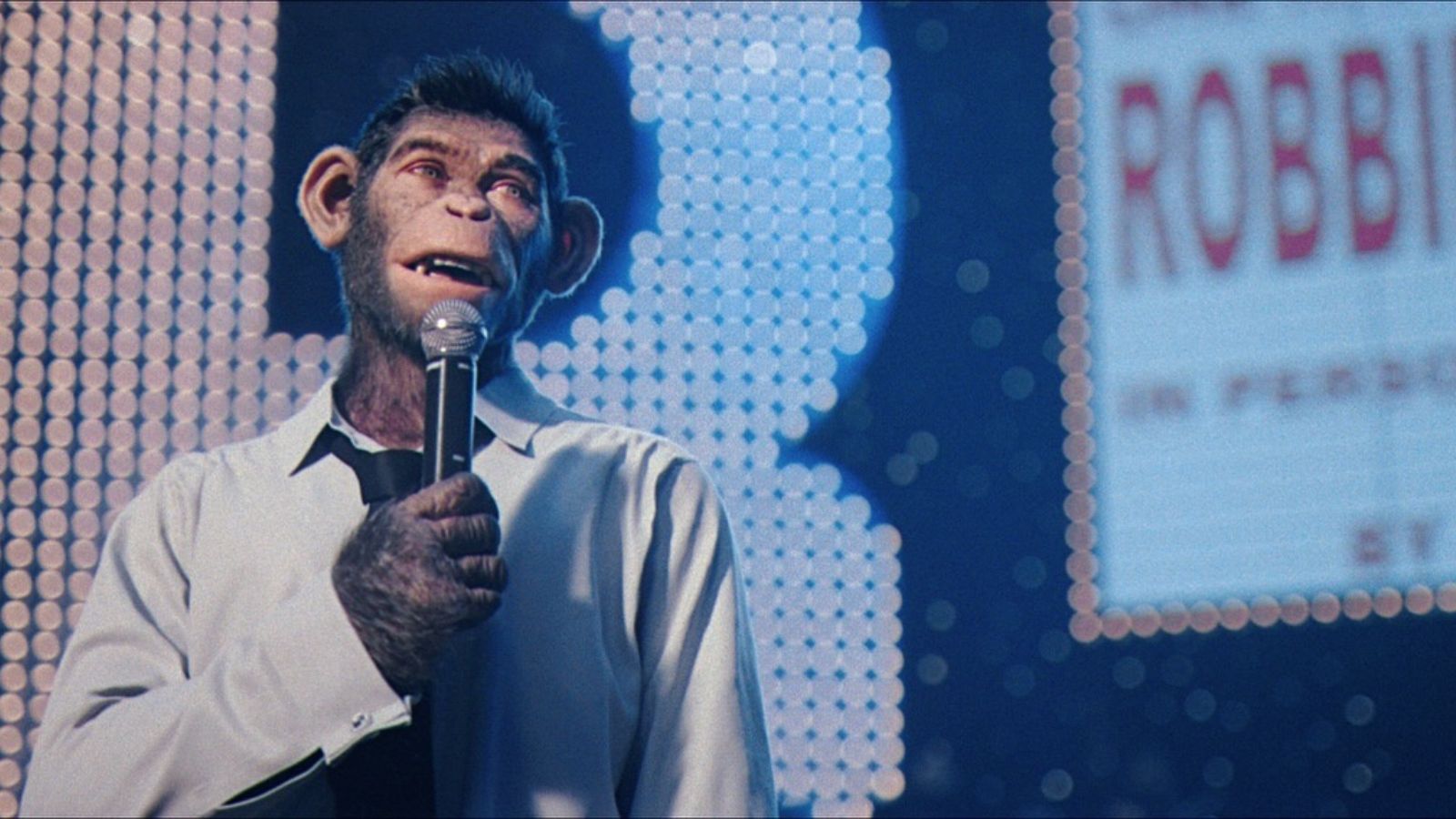
Courtesy of @robbiewilliams and @bettermanmovie
Viewing the biopic from an outsider’s perspective, someone unfamiliar with Williams and his music, Better Man gave me hope that originality and creativity can still triumph over formulaic storytelling and box office expectations.
Ultimately, Better Man deserved to be seen not just by fans of Williams or his music, but by creative individuals seeking a deeper understanding of the world and inspiration to create something meaningful that feeds one’s creative soul. We need films like Better Man to take risks and push artistic boundaries, reminding us that cinema is an ever-changing medium.
